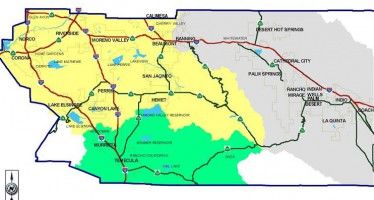Will School Block Grants Replace Earmarks?
By WAYNE LUSVARDI
In a February report, the Legislative Analyst’s Office charged that “virtually every aspect of K-14 (public school) mandate finance system is broken.” The report was titled, “Education Mandates: Overhauling a Broken System.”
The LAO report emphatically stated that if a mandated service does not serve a fundamental purpose, “the mandate should be eliminated.” The LAO’s package of suggested reforms would relieve schools districts and junior colleges of “hundreds of unnecessary activities that provide little value to students,” thus reducing the state’s annual obligations by more than $350 million.
The LAO added that the current system of funding mandates for K-14 public schools can have higher costs than anticipated. Reimbursement rates can reward inefficiency and ignore effectiveness. And recent court rulings are likely to make containing costs even more difficult. The LAO recommended establishing the following criteria for school-funding mandates:
1. It must result in a “true” mandated new program or increased level of service rather than redundant or unnecessary programs;
2. It must serve a statewide interest (not a politicized interest);
3. It must produce results consistent with legislative intent (and not get diverted into “mission creep”);
4. It must prove that the mandate cannot be achieved through a less-costly alternative.
In apparent response to the LAO’s report, State Assemblywoman Julia Brownley, D-Santa Monica, chairwoman of the Education Committee, has floated a draft bill. AB 18 would reform K-12 school funding formulas by replacing the existing earmark system with block grants.
What is at issue is not the layoffs of core teachers or how much administrative overhead a school district has. Rather, the issue is how many ancillary or even unnecessary services a school district can fund with reduced revenues.
Background – Deregulation Under ABX4 2
Following the recommendation of the Legislative Analyst’s Office, in 2009 the State Assembly passed ABX4 2, which deregulated $4.5 billion in categories of earmarks in the state budget. Collapsing funding categories allowed about a 15 percent reduction in K-12 public school funding without having to lay off core teachers.
The LAO recommended another round of funding simplification, including allowing modest increases in class sizes by collapsing 43 additional categorical programs totaling $7.4 billion into four block grants:
- Base Block Grant;
- Special Education;
- Opportunity to Learn (for disadvantaged students);
- Instructional Improvement.
A “block grant” is a grant of funds for discretionary use. It allows schools to decide how the money should be spent within a broad category of funds.
By contrast, “earmarks” are politically protected narrow categories of funds or job descriptions often meant to buy political patronage and votes. Block grants are a way of saying to school districts that they have to select what programs and jobs they want to fund. In a time of austerity, that means they can’t pig out at the cafeteria of possible programs and fund them all.
For example, a school district could choose to fully fund “vocational education” but curtail “personnel development” within the “Instructional Improvement” funding block. But it could not choose to eliminate funding for “Special Education,” which would be a separate block of funding. Nor could extra funding for disadvantaged students be eliminated, contrary to hysteria often spread by school districts, school financial consultants and newspapers.
Under the Base Block Grant, however, funding could not be eliminated or reduced for what is called “Incentive Funding” authorized by the voters in 1983 under AB 813. Incentive Funding provided an additional $1.4 billion for a K-12 public school slush fund, approximately equating to $226 per student. This is a protected “carve out” that is enshrined in the California Constitution.
Block grants with firewalls between them allow special funding for agreed upon priorities for the education of children to continue. But the block grants relax funding mandates for ancillary job categories and programs.
Block grants, where the funding decisions are diverted to the local level, are hated by local boards of education because special interests will descend on them rather than on far-removed state legislators. State legislators hate them because, where there is little payoff, they can’t buy votes or receive political donations from powerful unions.
AB 18 – Block Grants or Continued Earmarks?
Assemblywoman Brownley’s AB 18 is apparently an attempt to respond to the recommendations of the LAO to deregulate school funding mandates by using block grants. Brownley’s proposed bill apparently follows the LAO’s 2009 recommendation to collapse existing funding mandates into four block grants.
Brownley’s bill is expected to meet stiff resistance from unions. The unions hold that school districts should not have the flexibility to prioritize funding that would result in fewer teachers should class sizes be increased moderately (from 21 to 24 student per classroom); or should adult education be reduced.
Michael Kirst, president of the State Board of Education, has proposed an alternative system based on weighting, which is already part of Brownley’s Target Pupil Equity Block Grant. Kirst is apparently pushing for legislative protection of more funding categories and Brownley for fewer.
AB 18 is a work in progress and should be watched by all those interested in reforming the education mandate system and saving costs.
Related Articles
Sen. Boxer: Conservation would solve drought
Can California’s zero-sum water wars only be resolved by a system of stern water conservation? That’s what California U.S.
Poll: Republican gubernatorial candidates would perform well behind Democrat Newsom
Good news for California Republicans: In a field of nine candidates for the 2018 gubernatorial race, they have two of
Blakeslee Plans For Tax Law Reforms
FEB. 8, 2011 By KATY GRIMES During the gubernatorial campaign, job creation and retention was a prominent theme in candidate





